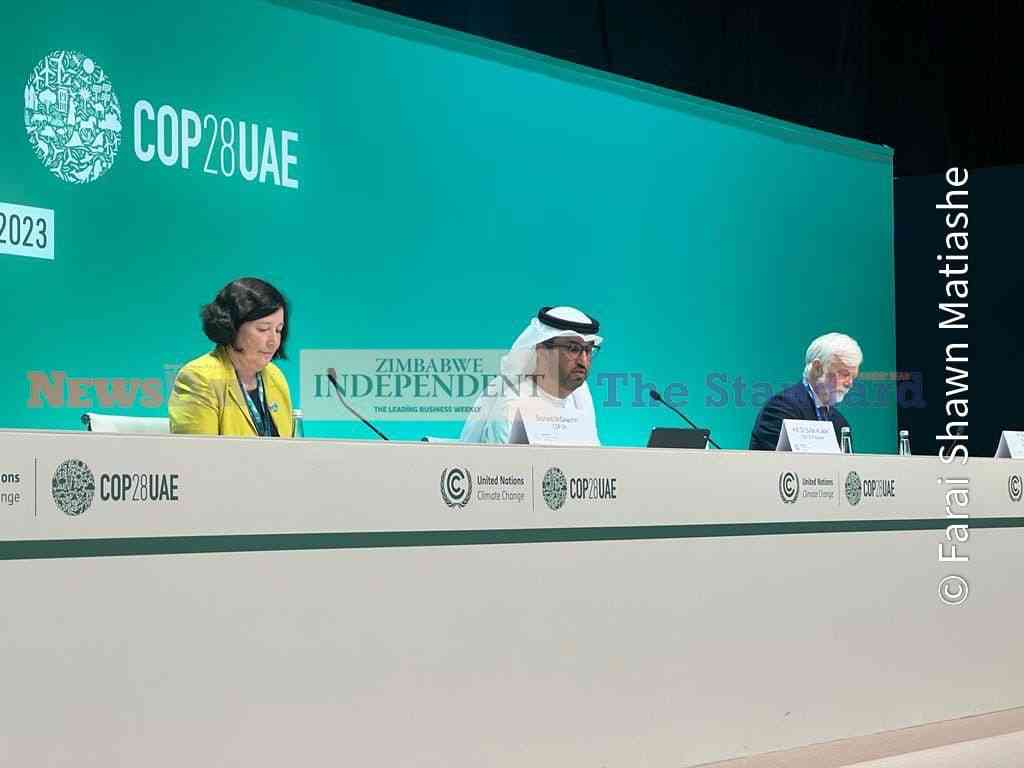
The ongoing United Nations (UN) climate summit in Dubai has been dominated by demands to end the use of fossil fuels, a key driver of climate change.
Fossil fuels such as coal, oil and gas produce greenhouse gas emissions into the air when they are burnt causing global warming and climate change.
Head of programmes at Conversation Alliance of Kenya, Kelvin Kariuki Muli said the fossil fuel industry should immediately end emissions.
“We want them to stop emissions because it is less emitters who are affected the most. African countries are the least emitters yet they are the most affected by these impacts,” he told Newsday on the sidelines of COP28 at Dubai Expo, last week.
“Fossil fuels are not ecologically sustainable and it is not justifiable.”
Muli is part of a youth delegation from East Africa, which is holding protests using written placards and banners demanding an end to fossil fuels daily at the summit.
At the conference, COP28 president Sultan Al Jaber was under fire after his remarks in one of the leading international media outlets that there is “no science” for demands to end fossil fuels.
Al Jaber, also the chief executive of the United Arab Emirates’ (UAE) state oil company DNOC, was forced into defence mode.
- The ‘Nairobi declaration’ brings Africa Climate Summit to a close
- Report objectively on Climate Change, media told
- Why climate change may see people turning to alcohol, drugs
- Africa’s no-holds-barred stand at upcoming COP28
Keep Reading
“I'm an engineer by background. It's the science, and I respect the science and my passion about the science, and it's my conviction to the science that has enabled me to progress in my career,” he said while speaking at a press conference.
“So, science has been central to my own career progress. And yes, I respect science in everything I do. And I respect and trust numbers and figures.”
There was heavy criticism surrounding the appointment of Al Jaber as COP28 president by the host UAE.
The world must get to net zero emissions by 2050 and emissions must be reduced by 43% by 2030 to keep 1.5C within reach.
Experts say to keep the global temperatures below 1.5C there has to be an almost immediate end to the use of fossil fuels.
“The science is clear: The 1.5C limit is only possible if we ultimately stop burning all fossil fuels. Not reduce, not abate. Phase out, with a clear timeframe,” António Guterres, UN secretary general, told delegates at COP28 on Friday.
Even though some African countries contribute less to global emissions, there has been an increase in appetite for fossil fuels across the continent.
Zimbabwe is digging deep into coal, with the help of Chinese investors, for exports as well as electricity generation in Hwange to the detriment of the local communities suffering from air, land and water pollution.
Developed nations and multinational fossil fuel companies are tapping into oil and gas reserves on African soil in countries like Tanzania, Uganda, Zimbabwe and Namibia.
Muli accuses COP28 of failing to address the needs of communities impacted by climate change effects of fossil fuels in Africa.
“This is why as an environmental activist I am putting my foot to campaign against the use of fossil fuels. That is why we are having massive campaigns and activism here to make sure that they hear the voices of the most affected people,” he said.
Blessing Ifemenam, a program advisor at ActionAid Nigeria, said African countries that rely heavily on fossil fuels to sustain their economies should invest in other sectors.
“We have been engaging governments to diversify the economy. Now as we are talking about climate change and its impact, our governments should diversify,” she said.
*This story was produced with support from MESHA and IDRC Eastern and Southern Africa office.










